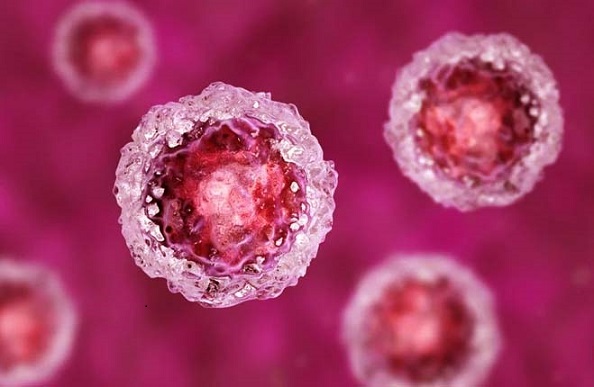Researchers in Singapore Discover Hidden Colon Stem Cells Behind Colorectal Cancer Rise
Nikhil Prasad Fact checked by:Thailand Medical News Team Oct 16, 2025 4 months, 1 week, 1 day, 23 hours, 32 minutes ago
Medical News: Breakthrough Discovery in Cancer Origins
Scientists from the ASTAR Institute of Molecular and Cell Biology (ASTAR IMCB) in Singapore have uncovered a major breakthrough that could reshape how colorectal cancer is understood and treated. The researchers identified two distinct types of stem cells in the colon—marked by the proteins NOX1 and NPY1R—that appear to be the main starting points for colorectal cancer. These finding sheds new light on why tumors in different sections of the colon behave so differently and respond in unique ways to treatment.
 Researchers in Singapore Discover Hidden Colon Stem Cells Behind Colorectal Cancer Rise
Researchers in Singapore Discover Hidden Colon Stem Cells Behind Colorectal Cancer Rise
Colorectal cancer is the third most commonly diagnosed cancer and the second deadliest cancer worldwide. In Singapore, it ranks among the highest globally, posing a serious public health challenge. This
Medical News report highlights how the A*STAR IMCB team’s work opens new doors to developing region-specific therapies that could revolutionize cancer treatment strategies.
Understanding Regional Cancer Differences
Using advanced single-cell analysis, researchers found that NOX1 marks stem cells primarily located in the cecum, the first part of the large intestine, while NPY1R identifies stem cells in the lower colon. When these specialized stem cells undergo genetic mutations, they act as the “seed cells” that give rise to colorectal cancer.
The team created laboratory models capable of selectively triggering cancer formation in specific colon regions. This method allows scientists to replicate the localized development of cancer, offering a more precise tool to study how tumors evolve and spread. Existing models have struggled to capture this level of regional specificity, often creating widespread tumors that do not mimic how human cancers progress in real life.
Why This Discovery Matters
Colorectal cancer’s behavior depends heavily on where it begins. For example, cecum tumors often go unnoticed until they reach advanced stages, spreading rapidly to lymph nodes. Rectal cancers, which make up about 40% of cases, are usually detected earlier but are notoriously difficult to treat effectively. By pinpointing the specific stem cells involved, researchers now have the opportunity to study these cancers more accurately and design tailored therapies for each region.
The Scientist Behind the Breakthrough
Leading the study is Professor Nick Barker, Senior Principal Scientist at A*STAR IMCB and a globally recognized pioneer in gastrointestinal stem cell biology. In 2007, his team made the groundbreaking discovery that the LGR5 gene identifies adult intestinal stem cells, a finding that transformed cancer research worldwide. His continued contributions earned him the 2022 Japanese Cancer Association International Award for excellence in stem-cell and cancer biology research.
Building on his earlier work, Prof Barker’s team also discovered Aquaporin-5
(AQP5) as a key marker for gastric stem cells in 2020, advancing research into stomach cancer origins. His studies have been cited tens of thousands of times globally, underscoring his influence in the field.
Toward Precision Cancer Medicine
The new findings establish NOX1 and NPY1R as the first region-specific markers for colon stem cells, offering a groundbreaking approach to model colorectal cancer and test new treatments. The team now aims to apply these discoveries to patient studies, exploring new diagnostic tools and early detection strategies.
This could pave the way for precision medicine in colorectal cancer, allowing doctors to identify which part of the colon is most at risk and design preventive or therapeutic interventions accordingly. Personalized treatments targeting specific cancer-initiating cells could dramatically improve survival rates and reduce recurrence.
Conclusion
This discovery represents a turning point in colorectal cancer research, providing powerful new insights into how cancers start and progress differently depending on their location within the colon. By developing precise models that mirror human disease, scientists are now one step closer to creating targeted treatments that could save countless lives. The potential for early detection and customized therapy makes this one of the most promising advances in cancer biology in recent years.
The study findings were published in the peer reviewed journal: Nature Cell Biology
https://www.nature.com/articles/s41556-025-01763-1
For the latest on Colorectal Cancer, keep on logging to Thailand
Medical News.
Read Also:
https://www.thailandmedical.news/articles/cancer
https://www.thailandmedical.news/articles/stem-cell-therapies
https://www.thailandmedical.news/articles/herbs-and-phytochemicals
